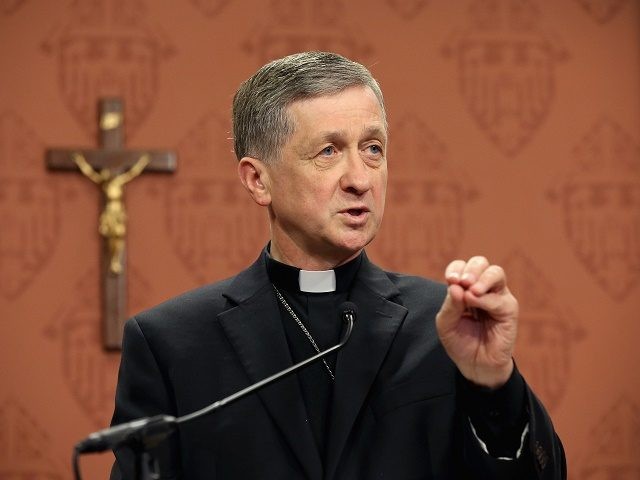In a recent statement on Sunday’s massacre of 50 people at the Pulse nightclub in Orlando (FL), Chicago Archbishop Blase J. Cupich avoids mentioning the ideology of radical Islam behind the shooting and points the finger instead to “easy access” to deadly weapons.
“Our prayers and hearts are with the victims of the mass shooting in Orlando, their families and our gay and lesbian brothers and sisters,” Cupich wrote in a Facebook post late Sunday.
The Archbishop proposes that Americans address the “causes” of the tragedy, invoking Pope Francis as his ally, since the Pope had also called for an investigation into the real genesis of the attack.
And yet, in his brief analysis of the sources underlying the heinous attack, Archbishop Cupich only mentions one: “easy access to deadly weapons,” before immediately adding, “We can no longer stand by and do nothing.”
Despite his evident access to the U.S. media’s abundant reports on the incident, the Archbishop fails to note in his statement that the Islamic State has publicly taken responsibility for the massacre that killed at least 50 people.
“The armed attack that targeted a gay night club in the city of Orlando in the American state of Florida which left over 100 people dead or injured was carried out by an Islamic State fighter,” said the Islamic State’s Amaq news agency on Sunday.
Federal authorities identified the shooter as 29-year-old Omar Mateen, reporting that he had pledged allegiance to the Islamic State in a communication with law enforcement before he was killed by police. Supporters of the Islamic State reportedly praised the attack in a bevy of comments on social media.
Yet rather than address the clear and evident cause behind the Orlando terror attack, Cupich has chosen instead to exploit the incident to further a favorite cause of his own: gun control.
In an article in America Magazine from February of this year, the Archbishop is cited as “calling for a ban on assault weapons, stricter background checks and prohibiting the sale of guns to people on the government’s no-fly list.”
“We must band together to call for gun-control legislation. We must act in ways that promote the dignity and value of human life. And we must do it now,” Cupich wrote in a Chicago Tribune op-ed last fall.
“Let’s be honest. The Second Amendment was passed in an era when organized police forces were few and citizen militias were useful in maintaining the peace,” he wrote, suggesting that it hardly has the same relevance today.
While measures such as effective background checks may garner wide support as one means to keeping weapons out of the wrong hands, it is hardly the real solution to a massacre like Sunday’s, whose sources are elsewhere.
Nonetheless, while pushing gun control, the Archbishop has systematically avoided addressing the problem of radical Islam, mitigating its importance and downplaying its influence in terrorist attacks.
In February, the archbishop expressly denied the deep theological roots of Islamic State terrorism, despite a growing body of evidence that ties ISIS actions to the underlying teaching of the Qur’an and Hadith. Instead, he has sought to separate the Islamic State from Islam itself, as if the two were unrelated.
“ISIS is not ideological in the sense of wanting to promote a particular faith or religion,” Cupich said. “Their motive is to wreak havoc, to create violence in society. ISIS wants us to be divided, to be afraid. America should not let ISIS win.”
In his statement Sunday, the Archbishop said: “In response to hatred, we are called to sow love. In response to violence, peace. And, in response to intolerance, tolerance.”
He might have also mentioned that in the face of disinformation, truth provides a welcome remedy.
Follow Thomas D. Williams on Twitter Follow @tdwilliamsrome

COMMENTS
Please let us know if you're having issues with commenting.